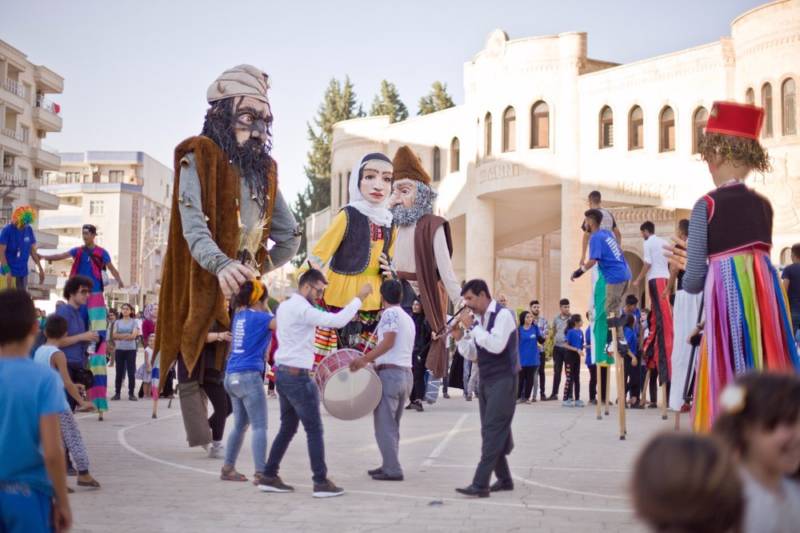Sahba Aminikia hadn’t planned on dancing when he stopped by Club Deluxe in the Haight to unwind and hear a little jazz three years ago. But the band was swinging, and before long, he found himself boogieing with a young Italian woman. The Iranian-born composer was in a very good place in his career, teaching at the Academy of Art University while writing music performed by top-flight ensembles around the world, including Kronos Quartet.
During a break in the music, the woman related a fantastical story about an organization teaching circus arts to children who’d fled war and repression in Syria, Iraq and Turkey. Forcefully struck by the unlikely vision, Aminikia set out on a quest that ultimately led him to give up his secure academic day job in San Francisco in order to establish the 2018 Flying Carpet Festival in the remote southeastern corner of Turkey.
Flying Carpet returns for its second year Aug. 18-24, and Aminikia isn’t going alone. Drawing on his vast network of friends and colleagues, he’s recruited musicians, composers, and technicians from the Bay Area and far beyond to bring music to children unmoored by some of the world’s most harrowing conflicts.
“This young Italian woman started telling me about her sister who was a clown in a refugee camp,” Aminikia recalls. “That wasn’t exactly true. It’s not a refugee camp, but she forwarded me the Instagram account of this NGO called Sirkhane, which means ‘House of Circus’ in Turkish and Arabic. I saw this incredible footage of a parade going through the most distant Kurdish villages. It was so mesmerizing and totally out of place, this crazy event happening somewhere where people are dealing with real issues and pain.”
Since he was already heading to the region to visit his family for Nowruz (Persian New Year) in March, Aminikia decided to take a detour to Mardin, the ancient town in southeastern Turkey where Sirkhane is based. The situation was tense upon his arrival, with tanks patrolling the streets of a city that was part of the Assyrian Empire in the 14th century BCE. Undaunted by the military presence, children quickly surrounded Aminikia “and every one of them wanted to sing,” he says. “I started to record them, and then I thought, ‘Maybe it’s not a great time for an American citizen to be recording.’ As I was leaving, the children were running after the car, still singing. It wasn’t a choice any more. I wanted to be involved.”


